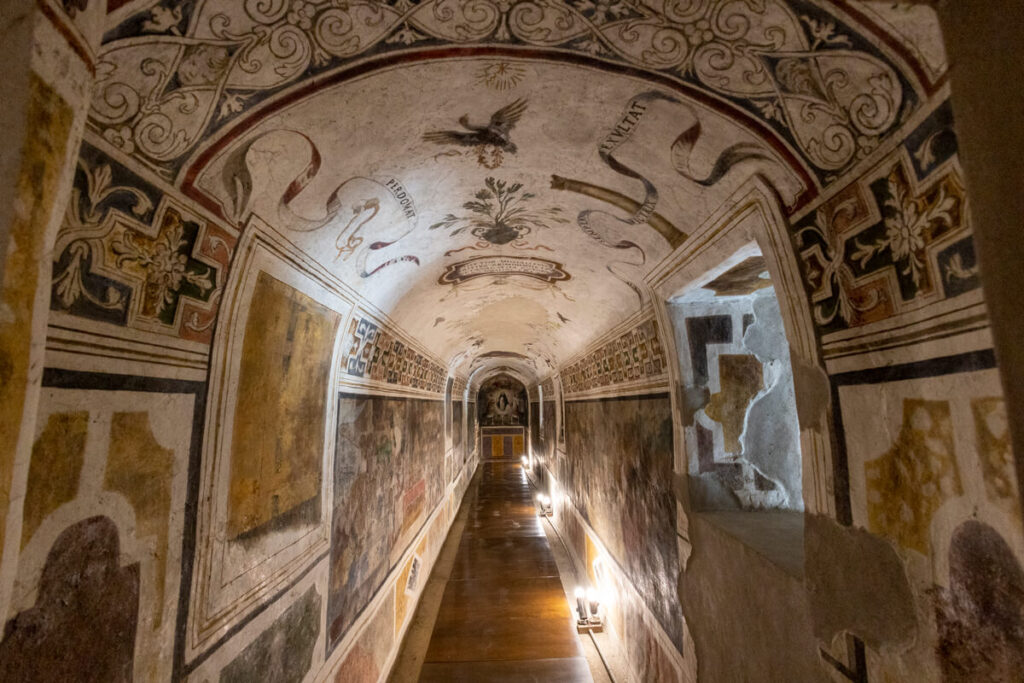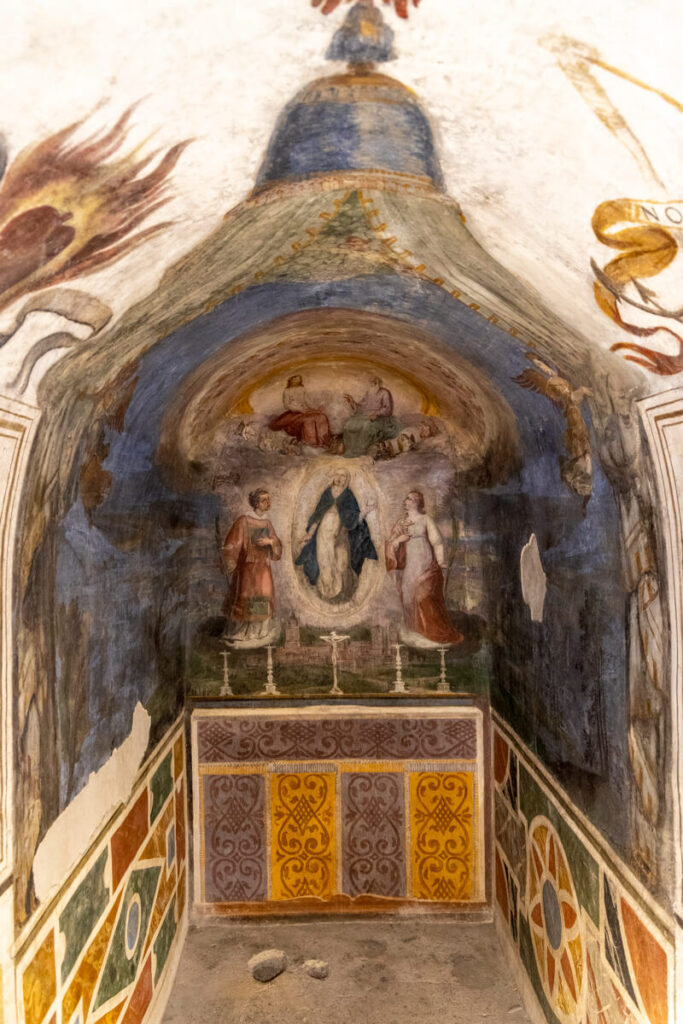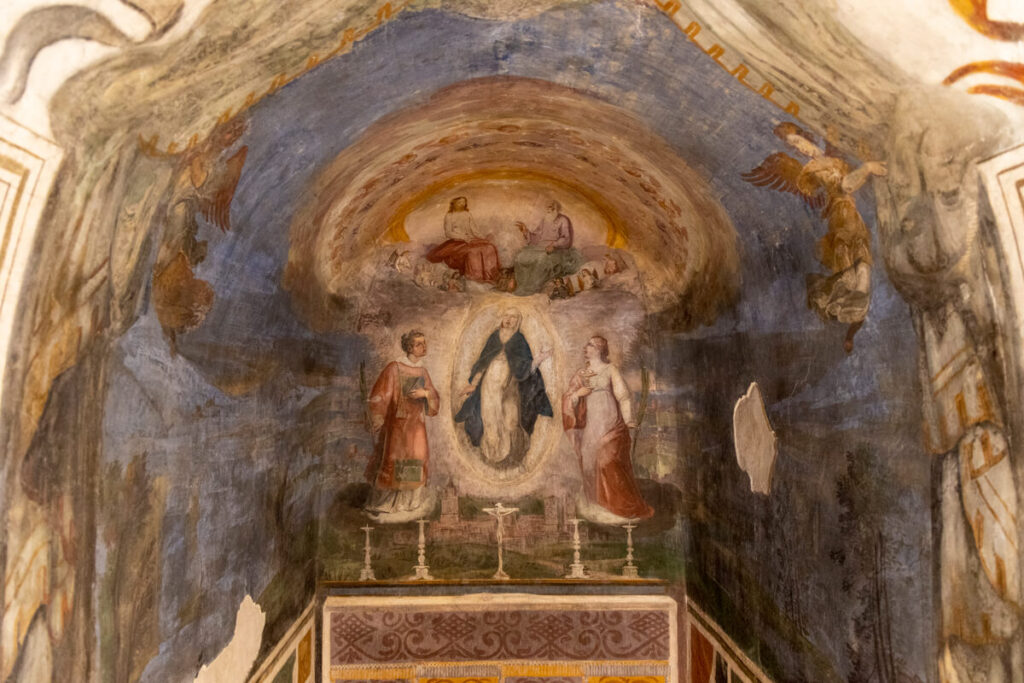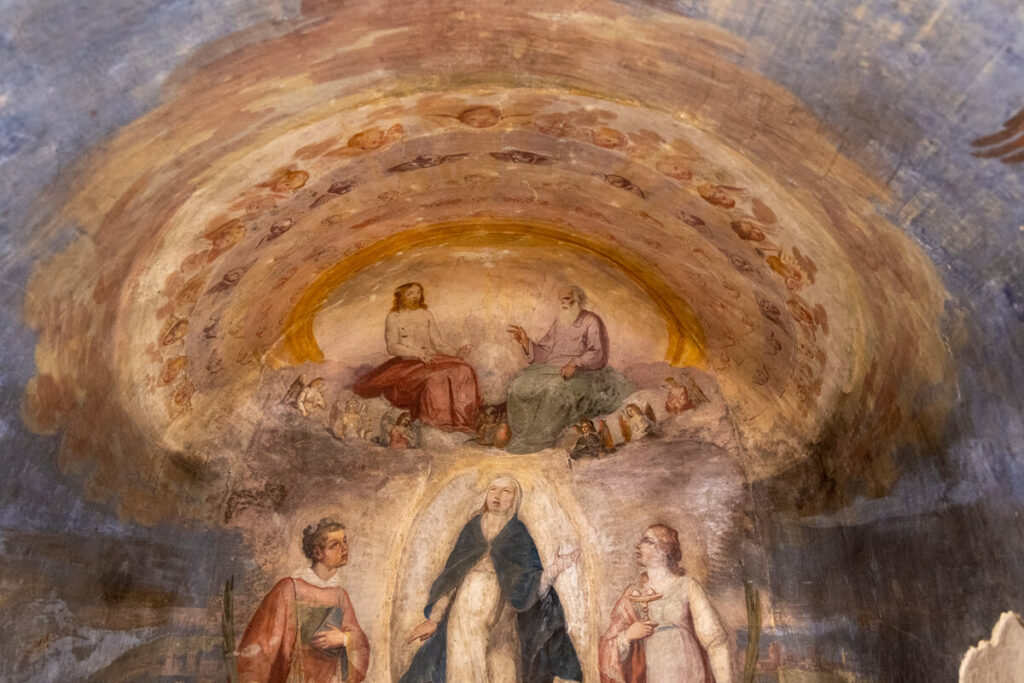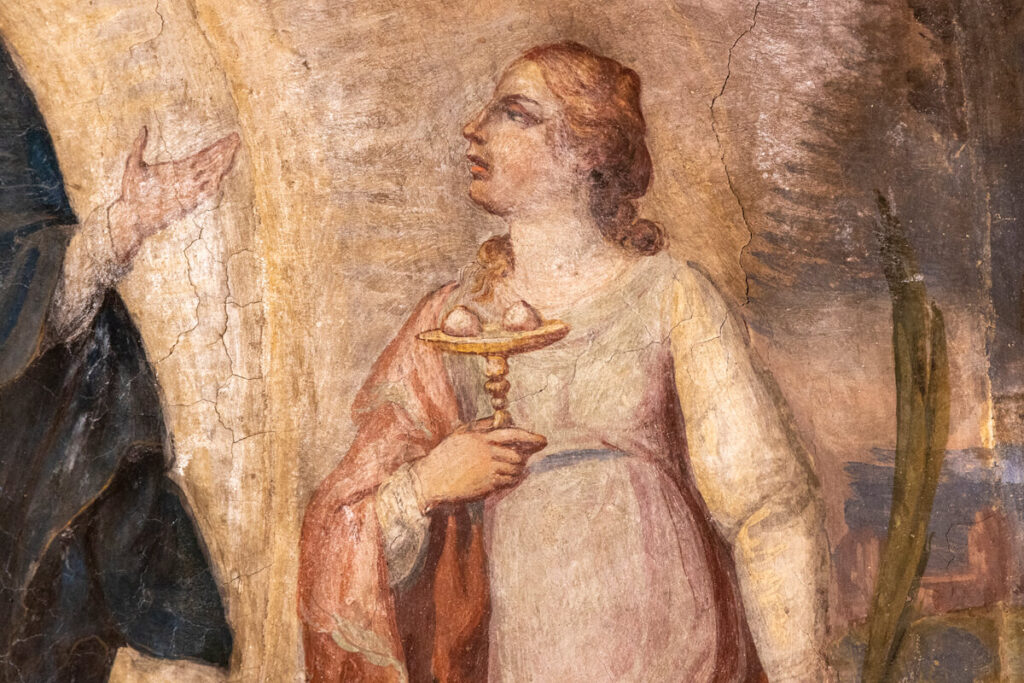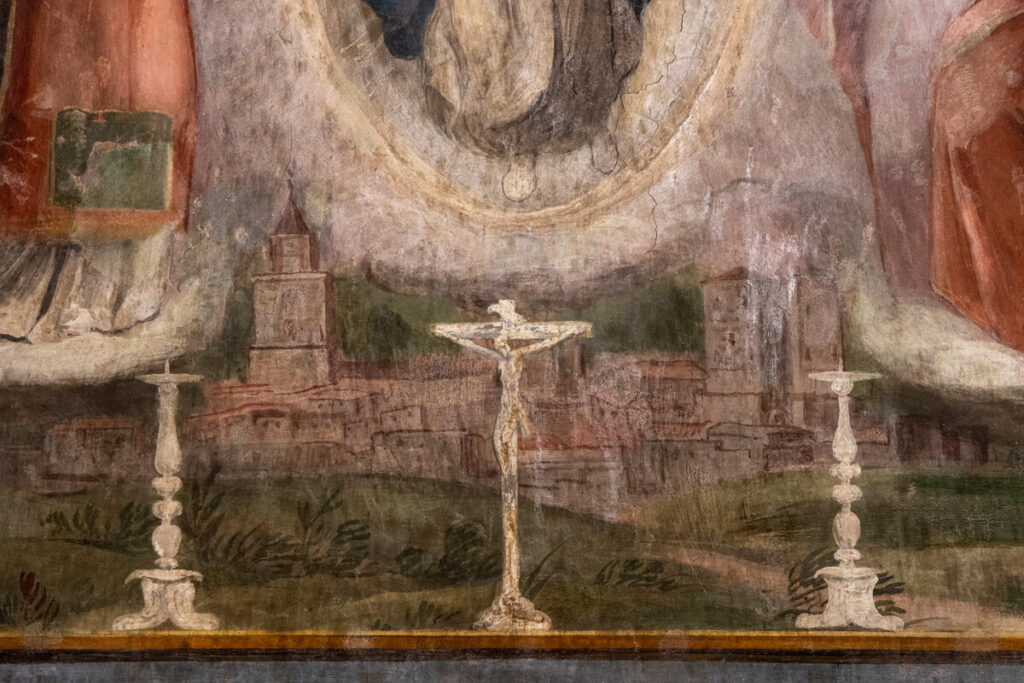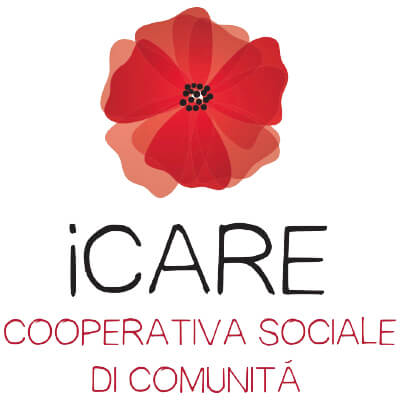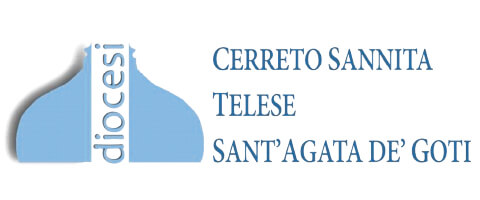On the ground floor, one can visit the grottoes and a tunnel frescoed in 1614: the cycle of biblically inspired frescoes with episodes from the Old Testament, commissioned by Bishop Diotallevi.
Ten metres long by two metres high, it was once lit by means of candles, the iron supports of which are still visible.
The paintings depict scenes from the Old and New Testaments, perfectly preserved. Here Saint Alphonsus would gather in silence and solitude to atone for his sins: a ‘path’ of contemplation. In the background are Saint Stephen and Saint Agatha, co-patrons of the city along with Saint Alfonso himself, while a glimpse reveals the profile of Saint Agatha with its bell towers, as it looked before the devastating earthquake of 1688.


The Church of the Carmine in the square of the same name is at a focal point in the historical centre, halfway between the Ducal Castle and the Cathedral.
In this section there are several tombstones and marble slabs from the local area, as well as vestments, sacred texts and writings by Saint Alfonso Maria de Liguori.


